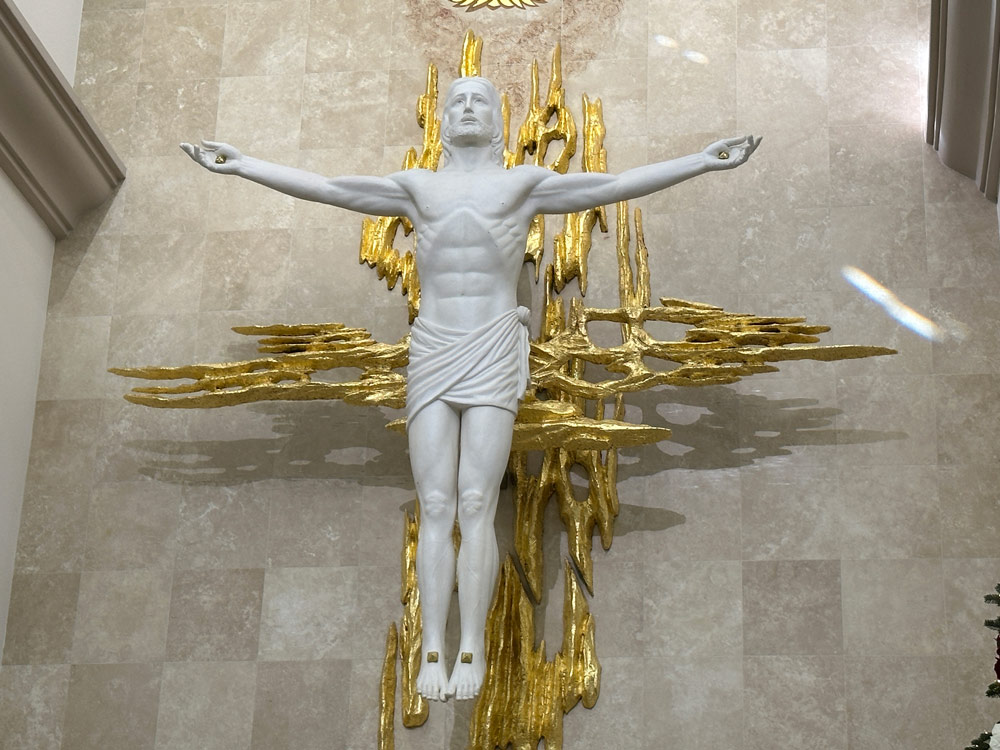
The Supreme Court on Friday afternoon added three more cases – two of which will be argued together – to its docket for the 2024-25 term. In a brief unsigned order, the justices agreed to review a ruling by the Oklahoma Supreme Court that rejected an effort by a Catholic online school to become the nation’s first religious charter school. The justices also agreed to weigh in on a question relating to the certification of class actions.
The justices fast-tracked the briefing schedule for the cases, which will allow them to be argued during the last week of the court’s April argument session – the final regularly scheduled session of the term – with a decision to follow by late June or early July.
Justice Amy Coney Barrett did not participate in the decision to grant review. She did not provide any explanation for her recusal.
In Oklahoma Statewide Charter School Board v. Drummond and St. Isidore of Seville Catholic Virtual School v. Drummond, the Oklahoma Supreme Court agreed with the state’s attorney general, Gentner Drummond, that the charter school board violated state law, the Oklahoma Constitution, and the U.S. Constitution when it allowed St. Isidore, a Catholic online school, to become a charter school.
![]() The Oklahoma Supreme Court reasoned that although the state constitution and the establishment clause of the U.S. Constitution “prohibit the State from using public money for the establishment of a religious institution,” “St. Isidore’s educational philosophy is to establish and operate the school as a Catholic school.”
The Oklahoma Supreme Court reasoned that although the state constitution and the establishment clause of the U.S. Constitution “prohibit the State from using public money for the establishment of a religious institution,” “St. Isidore’s educational philosophy is to establish and operate the school as a Catholic school.”
The school and the charter school board came to the Supreme Court in October, asking the justices to weigh in. The school contended that the state supreme court’s ruling “unconstitutionally punished the free exercise of religion by disqualifying the religious from government aid.” What’s more, the school argued, the state supreme court circumvented the U.S. Supreme Court’s cases establishing a right to the free exercise of religion “by transmuting St. Isidore into an arm of the government”: It “reasoned that excluding St. Isidore on religious grounds raised no Free Exercise problem because St. Isidore’s contract would turn the school into a ‘surrogate of the State,’ noting that Oklahoma’s legislature had labeled the charter schools ‘public.’”
The state urged the justices to deny review. It emphasized that the school intends to “serve the evangelizing mission of the church.” And it contended that the justices should not intervene because the state supreme court’s ruling rested separately on its conclusion that the school’s contract with the charter school board violated the Oklahoma Constitution – which is the kind of “adequate and independent” state ground precluding Supreme Court review.
After considering the petitions by the school and the charter school board at three consecutive conferences in January, the justices granted review and consolidated the two cases for one hour of oral arguments (which, under the court’s current practice, will almost certainly last much longer than one hour).
The justices also granted review in Laboratory Corporation of America Holdings v. Davis, in which they will decide whether a federal court may certify a case as a class action when some of its members have not been injured.
This article was originally published at Howe on the Court and Scotus Blog.





























justbob says
Nope
Pogo says
@Oh, I see
https://fedsoc.org/contributors/amy-howe
Deborah Coffey says
Not ever! But Republicans despise The Constitution (and all law) when it doesn’t give them what they want. Are any of those tax dollars going to the madrassas located in The United States? Just curious about how far Republican hypocrisy extends. Lately, it appears to extend into infinity. Some “law and order party” not to mention one with “family values” while releasing 1600 criminals from prison to roam our streets plotting their revenge in the name of their god…Donald Trump. What if half of all Americans refused to pay their taxes this year? After all, they aren’t going to get any benefits at all from Trump and Musk.
jake says
“In total, about 59.9 percent of U.S. households paid income tax in 2022. The remaining 40.1 percent of households paid no individual income tax. In that same year, about 47.1 percent of U.S. households with an income between 40,000 and 50,000 U.S. dollars paid no individual income taxes.”
FlaglerLive says
Five Myths abut the 47 percent. (And Jake, stop peddling those myths here. We don’t do mis- or dis-information.)
Whiplash says
Once there are at least two more Republican Supreme Court appointments this will no longer be an issue!
c says
Real simple … You (religious institutions) want to use Public Funds?
Then you have to pay the public taxes.
I have No problems with using tax monies for religious organizations, but ONLY if they agree to give up the tax-exempt status they enjoy.
You wanna eat at the public trough, you gotta contribute to the public trough.
Atwp says
Nope!
A concerned Observer says
Public schools are funded by the “Public” through taxes. I have no children, but I’ve paid school taxes for my entire working life (60 years) nonetheless . I must continue to pay school taxes on my retirement income. Private schools do not fall under the “public” rules and must be funded by private donors. If a private school cannot survive on private donations and fees paid by the students family, than we (the public) have no obligation to bail them out.